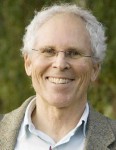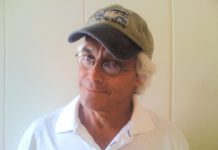Merchants of Doubt, Texas Oil, and Prop. 23

Doubt. Texas oil companies. Proposition 23. These are three connected matters that are affecting all Californians. As mid-term elections approach, we need to understand these connections. I was helped in that regard recently by attending a lecture by UC San Diego science historian Naomi Oreskes on the book she co-authored, “Merchants of Doubt: How a Handful of Scientists Obscured the Truth on Issues from Tobacco Smoke to Global Warming” (2010). I was accompanied by Lagunans Bill Rihn and Les Miklosy, the three of us having worked with others on our city’s Climate Protection Action Plan.
Let’s start with doubt. With literally thousands of their colleagues claiming otherwise, a handful of eminent scientists either deny that global warming exists, or that if it does, natural climate cycles, not human activities, are responsible. In 2004, Dr. Oreskes published an article in the journal Science indicating that since the late 1980s a consensus had been forming among scientists that the earth was warming principally due to green house gases. She noted that between 1993 and 2003 not one article appeared in a peer-reviewed science journal refuting this consensus. Yet, in 2007, 40 percent of Americans believed that scientists were uncertain about global warming and were divided in their opinions. Flat wrong, yet feeding public doubt, then-Vice President Dick Chaney stated on national television that “there does not appear to be a [scientific] consensus” on whether global warming is “caused more by natural climate cycles or by man, greenhouse gases, et cetera.”
Clearly, a sizable portion of our citizenry is not persuaded by facts, but rather by disinformation, beliefs, and emotions. The George C. Marshall Institute in Washington, D.C., and (until recently) Exxon Mobil Oil have invested heavily in time, money, and talent to create doubt that scientists have reached a consensus on the extent and causes of climate change.
Other countries take seriously the scientific evidence and consensus on climate warming. Britain’s Foreign Secretary William Hague said during a recent U.S. visit, “climate change is perhaps the 21st century’s biggest foreign policy challenge.” Similar views have been expressed by other European leaders, such as France’s President Sarkozy and Germany’s Chancellor Merkel. Republican leaders in the U.S. remain singularly in denial and opposed to combating warming. Ronald Brownstein, senior writer at the National Journal, concluded recentlythat “it is difficult to identify another major political party in any democracy [worldwide] as thoroughly dismissive of climate science as the GOP.”
Against this national and international backdrop, two Texas oil companies, Valero and Tesero, have established refining operations in California. The Golden State’s adoption of AB 32 in 2006, the landmark measure mandating the reduction of Green House Gas emissions to 1990 levels by 2020, requires that these two corporate giants slash their emissions, thereby lowering profits.
Little wonder is it then that Valero and Tesero contributed $2 million to put Prop. 23 on California’s November ballot. This initiative would suspend AB 32 until California’s unemployment rate dropped for one full year to below 5.5 percent. The state’s nonpartisan legislative analyst says that, if passed, Prop. 23 would probably suspend AB 32 for “many years.”
Few Lagunans will be bamboozled by the merchants of doubt and Texas oil. Most understand that with AB 32’s implementation will come green jobs. Will our fellow Californians see as clearly?
Tom Osborne, author of two books with a third under contract, is a retired Santa Ana College history professor and a recent recipient of the City’s Environmental Award.




